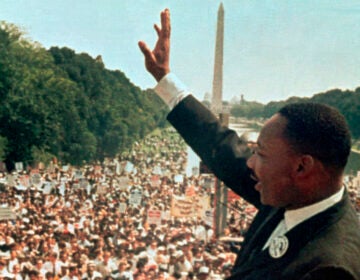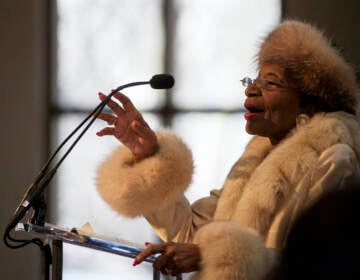Poor People’s Campaign seeks to revive MLK’s vision
Activists are reigniting Martin Luther King Jr.’s unfinished fight against poverty.
Listen 10:53
Sign-carrying participants march on the southern leg of the Poor People's Campaign May 10, 1968, in Atlanta. (AP file photo)
A few months before he was assassinated, Martin Luther King Jr. launched the Poor People’s Campaign, an effort to end poverty in the U.S. Today, more than 50 years later – under the leadership of the Rev. William J. Barber of North Carolina and Dr. Liz Theoharis of New York – activists are reigniting the civil rights leader’s unfinished fight, with demonstrations in more than a dozen state capitals, including Harrisburg, Trenton, and Dover.
Both campaigns are rooted in a sermon King delivered in 1968, just a few days before he was gunned down in Memphis, Tennessee. Toward the end of his life, King noticed that the gains of the civil rights movement had not translated into livable wages for African-Americans, and he turned his attention to economic justice for people of all races.
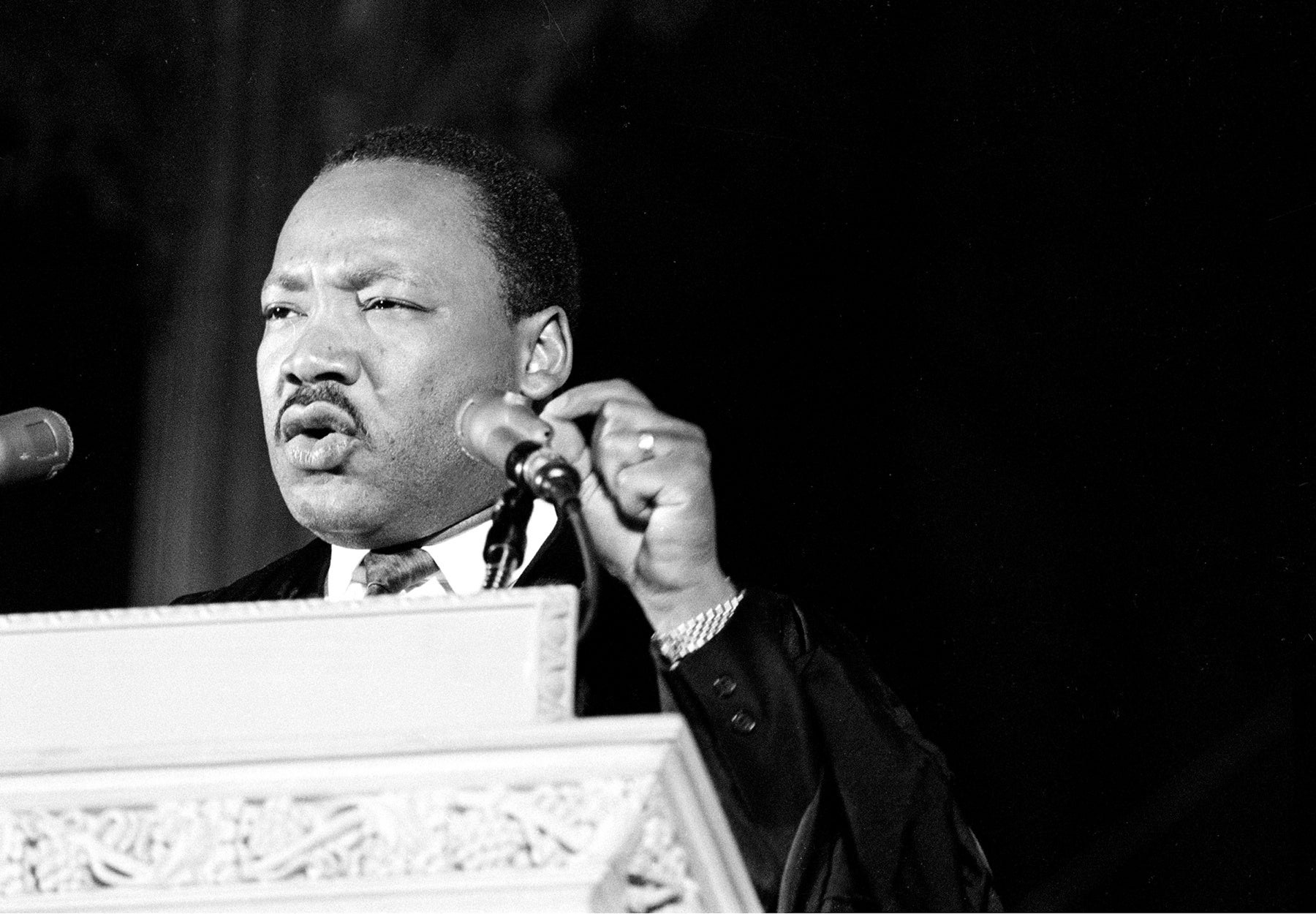
The roughly 45-minute speech laid out the broad strokes for a new kind of national movement, part of what King referred to as a human rights revolution.
“We read one day, ‘We hold these truths to be self-evident, that all men are created equal, that they are endowed by their creator with certain inalienable rights, that among these are Life, Liberty, and the pursuit of Happiness. But if a man doesn’t have a job or an income, he has neither life nor liberty nor the possibility for the pursuit of happiness. He merely exists,” King said from the pulpit at the National Cathedral in Washington, D.C.
King also told the packed church that success would depend on getting people living in poverty to participate, a concept that is also at the forefront of the relaunched campaign.
“I submit that nothing will be done until people of good will put their bodies and their souls in motion,” said King. “And it will be the kind of soul force brought into being as a result of this confrontation that I believe will make the difference.”
It’s why Pat Albright, a longtime activist from Philadelphia, traveled to Harrisburg Monday for the first of six afternoon rallies scheduled during the first phase of the new Poor People’s Campaign: A National Call for Moral Revival.
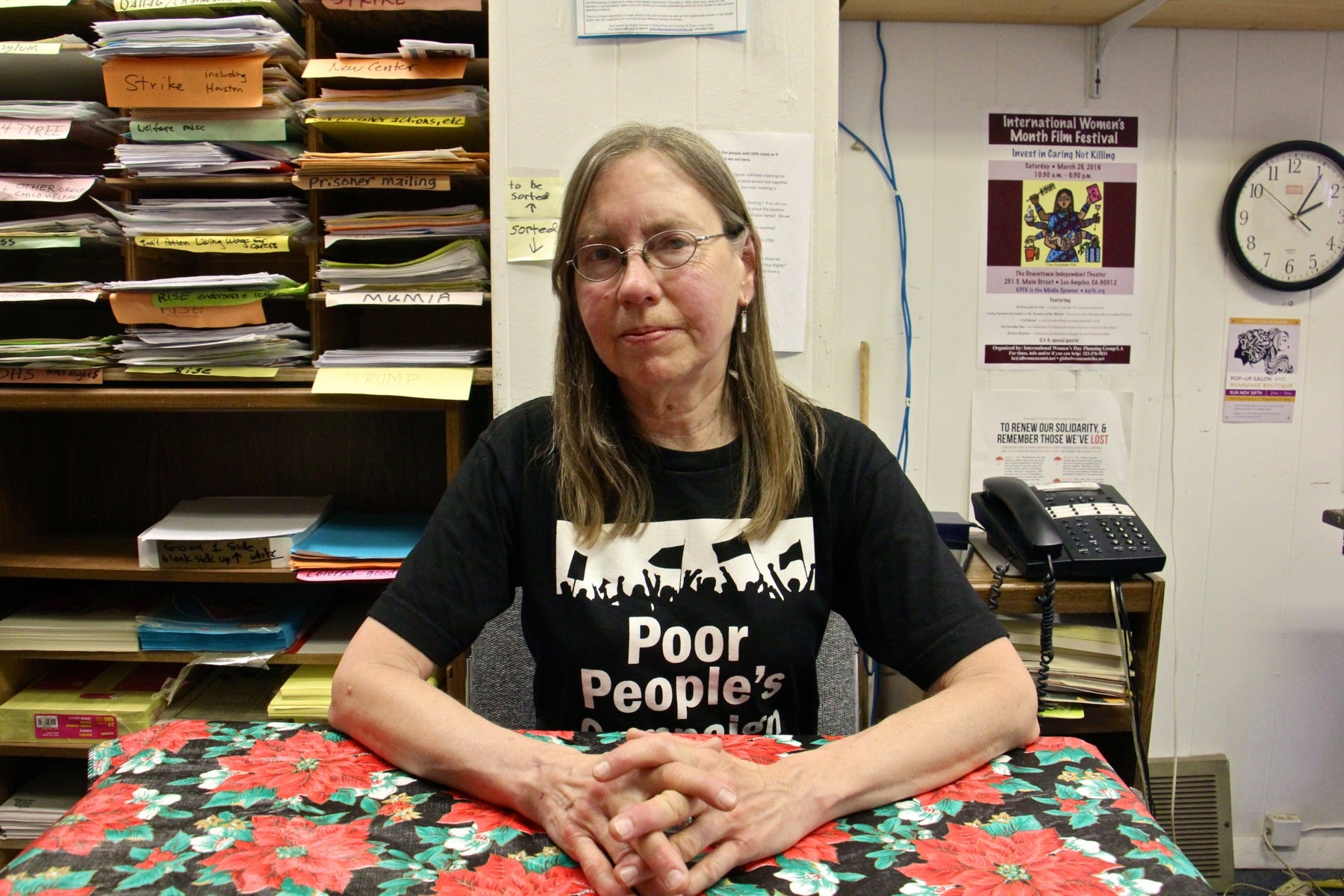
“When they see us coming together, that’s when they get scared, because when we come together, we can make change,” she said.
Albright, 65, grew up lower-middle class, but has struggled to make ends meet almost her entire adult life.
After dropping out of college to help organize against the Vietnam War, Albright went on welfare, then on disability. Not having a bachelor’s degree made it hard to find work that paid a living wage. A hearing problem, along with anxiety and depression, made it even harder to keep the jobs she was able to get.
“I was fortunate that I wasn’t homeless and so on, but it was very difficult and hard work to try and raise a child as best I could in a situation of poverty,” she said.
Albright lives on less than $15,000 a year — squarely below the federal poverty line for a single mom, though she doesn’t have to pay rent. When they died, her parents left her enough money to buy a rowhome in Philadelphia’s Germantown neighborhood. But money is still tight.
“If we would go out to dinner, I would have a cup of coffee because I really couldn’t afford to buy me a meal,” Albright said. “So I could at least have the company with people. Sometimes, people didn’t understand. They’d say, ‘Well, let’s all split this.’ That kind of thing can be awkward and you start to feel embarrassed.”
During the first Poor People’s Campaign, poverty was still a relatively new concept for a country grappling with discrimination. In 1968, segregation had only been illegal for four years.
And while U.S. Census data show the percentage of people living in poverty — roughly 13 percent in Pennsylvania — was virtually the same as it is today, the U.S. economy was much different. Someone like Albright could feed a family without getting a college education. There were still plenty of manufacturing jobs.
That changed shortly after King’s campaign ended. Over the course of two decades, factories left cities for the suburbs or moved overseas. The new service economy meant people without education or a trade were left to work minimum wage jobs, making economic mobility — moving out of poverty — nearly impossible. The chasm between rich and poor has grown wider and wider, even as productivity has soared.
“Income inequality now is through the roof in relation to what it was in the mid-’60s,” said Roberta Iversen, an associate professor with the graduate School of Social Policy and Practice at the University of Pennsylvania.
“CEOs in certainly the ’50s and ’60s were maybe paid 15 to 30 percent more than their average worker,” she said. “And now, it’s 350 percent in many places.”
The platform for the new Poor People’s Campaign is also much broader than King’s, which largely boiled down to lobbying lawmakers for more public investments to fight poverty.
The goals of the first campaign included a guaranteed annual wage; getting the federal government to build thousands of affordable housing units; and pushing Congress to pass an Economic Bill of Rights, which, among other things, would create at least a million public service jobs.
The new Poor People’s Campaign is organized around “four evils:” systemic racism, poverty, the war economy, and environmental devastation.
Its website lists nearly two dozen demands, each linked in some way to those themes, including:
- equity in education
- single-payer universal health care
- reinvestment in and expansion of public housing
- 100 percent clean, renewable energy
- a ban on natural gas fracking
- a ban on the proliferation of guns in our communities
- an end to mass incarceration
Longtime West Philadelphia resident Nijmie Dzurinko, an organizer with the Pennsylvania chapter of the new Poor People’s campaign, admits the platform is ambitious.
“Even though people see a lot of issues and think, ‘Oh, this is so many different things,’ we’re actually talking about how they’re connected and inseparable. And we actually can’t move on one unless we move on the other,” said Dzurinko, who herself teeters on the edge of poverty.
During the first campaign, 3,000 people spent a string of wet, muddy weeks living in Resurrection City, a shantytown of wooden structures built by the Lincoln Memorial, to bring awareness to their demands.
For now, nothing similar is planned for 2018, though the first phase of the new campaign includes weekly demonstrations, concluding with a large rally in Washington, D.C., on Sunday, June 23.
Dzurinko said the protests are designed to challenge a system that shames people into thinking that being poor is their fault.
“People who are poor and people who are homeless shouldn’t be shamed,” she said. “It’s actually a shame of the system, which exists in the richest country in the world.”
On June 19, 1968, an estimated 50,000 people filled the National Mall for a Solidarity Day march. Never fully recovering from King’s death, the campaign wrapped up not long afterwards with some modest achievements, including increased federal funding for free and reduced-price lunches for school children and Head Start programs.
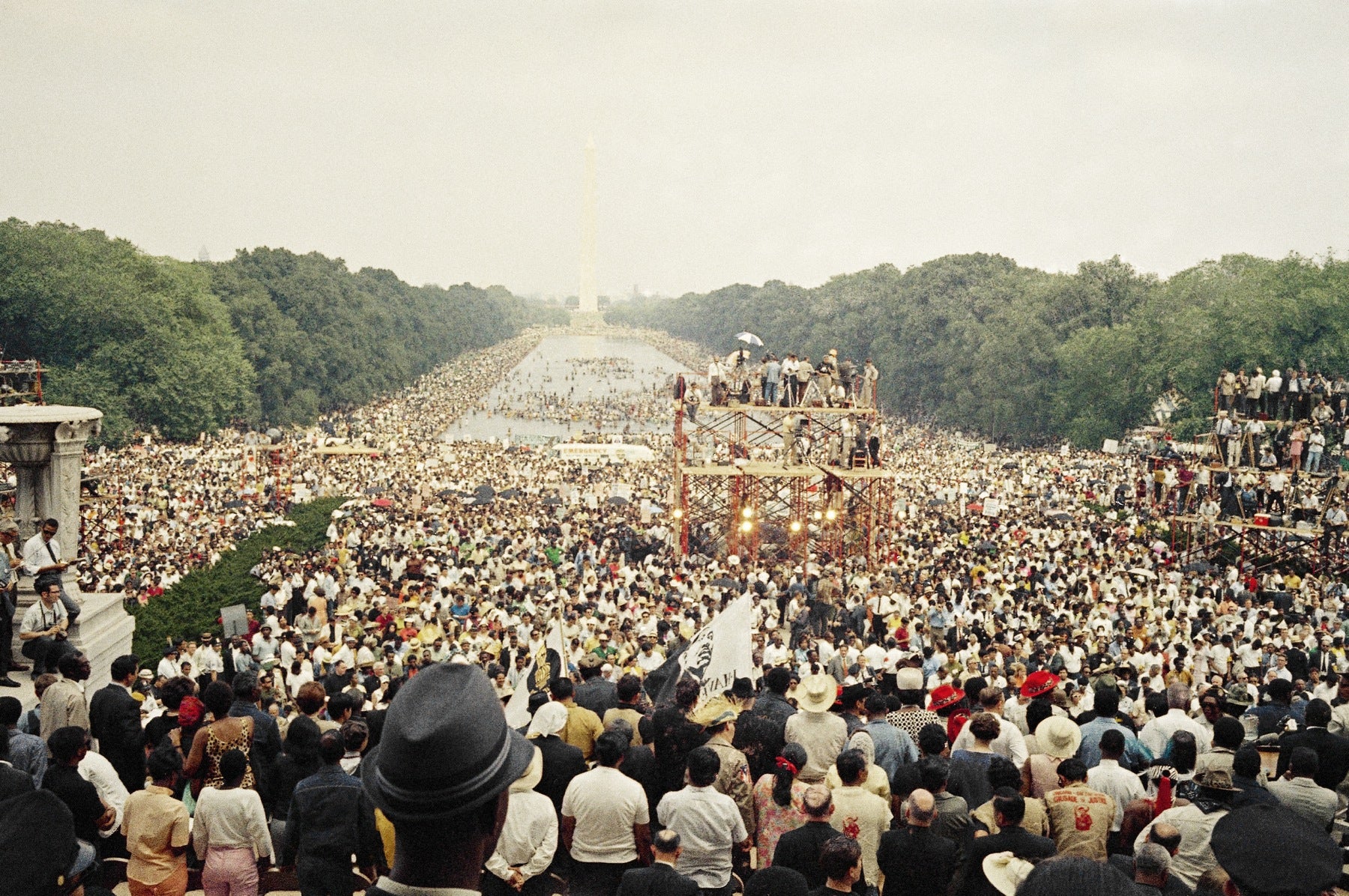
Activists behind the new campaign hope to accomplish more.
After the rallies this spring and summer, the next steps for the new Poor People’s Campaign are unclear, but the effort is expected to last years. Dzurinko said getting lawmakers and the federal government to make poverty a priority will not happen overnight.
“This isn’t just about saying, ‘Look at those poor people over there,’ ” she said. “This affects all of us.”
Annette John-Hall contributed reporting.
—
 WHYY is one of 19 news organizations producing Broke in Philly, a collaborative reporting project on solutions to poverty and the city’s push towards economic justice. Follow us at @BrokeInPhilly
WHYY is one of 19 news organizations producing Broke in Philly, a collaborative reporting project on solutions to poverty and the city’s push towards economic justice. Follow us at @BrokeInPhilly
WHYY is your source for fact-based, in-depth journalism and information. As a nonprofit organization, we rely on financial support from readers like you. Please give today.




